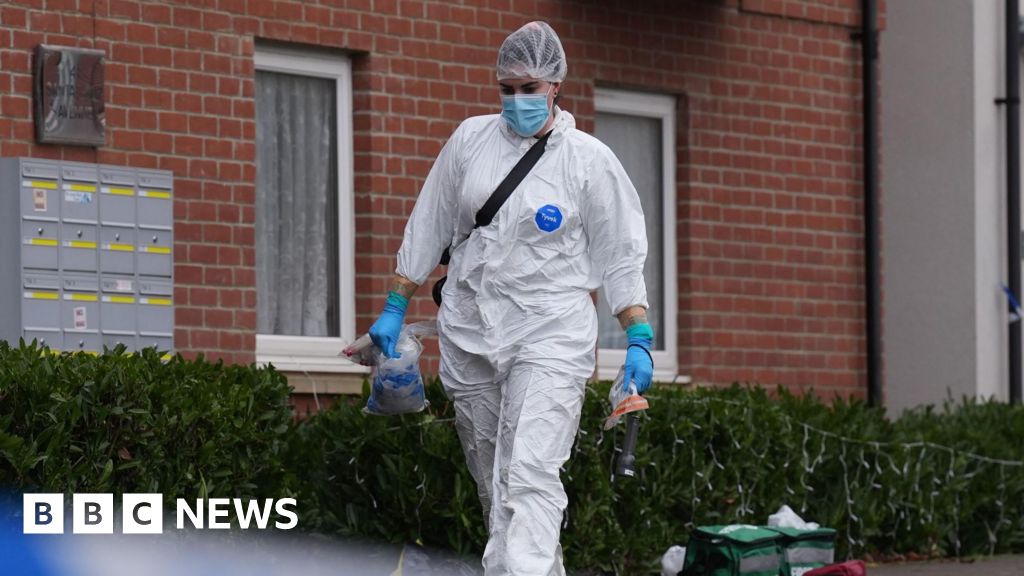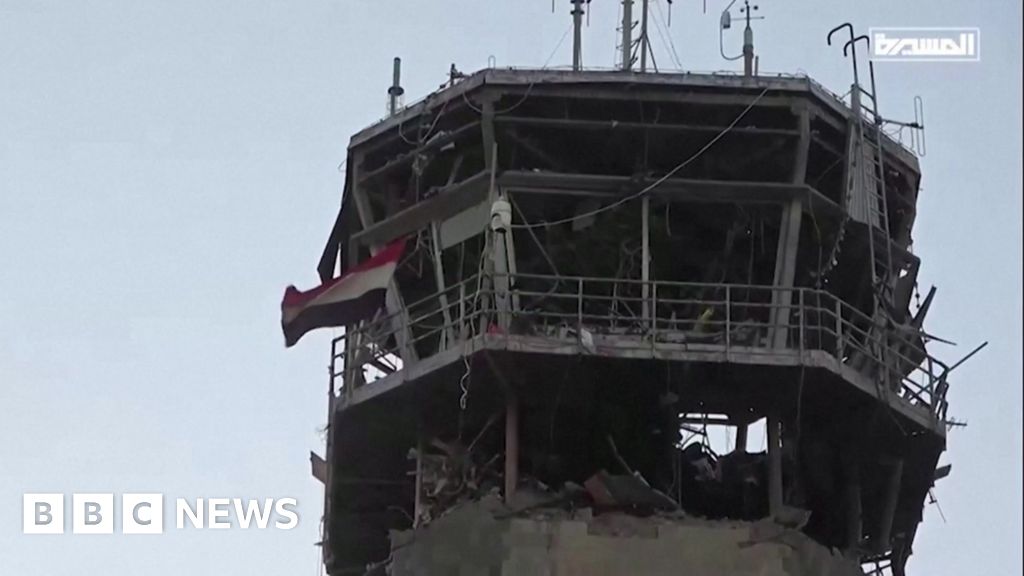57 minutes ago
By Nadine Yousif, BBC News
More than a million people are under flood warnings in the upper US Midwest on Sunday after days of heavy rain that forced evacuations and rescues in several states.
The hardest hit have been Iowa and South Dakota, where some rivers are expected to reach record-high levels over the next few days.
Iowa Governor Kim Reynolds called the floods “catastrophic” and has declared a state of disaster in 21 counties.
Drone footage posted by regional officials show homes and buildings almost completely submerged, with only rooftops visible.
Other states under weekend flood warnings include Nebraska, Minnesota, Wisconsin and parts of Illinois.
A flood warning means that flooding is either imminent or ongoing.
Some warnings are expected to end late on Sunday, according to bulletins by the National Weather Service (NWS), but others are in effect until further notice.
In Iowa, officials said river levels have risen above those of a 1993 flood that killed 50 people.
Up to 18in (45cm) of torrential rain fell in some areas over this weekend.
In neighbouring South Dakota, Governor Kristi Noem warned that the worst of the flooding is expected on Monday and Tuesday, and that the Big Sioux River could surpass record levels.
Around 4,000 residents in Rock Valley, Iowa - about 50 miles (80 km) southeast of Sioux Falls - were forced to evacuate after the Rock River rose to record levels on Saturday.
Residents in the region are without clean running water as floodwater has contaminated the wells, officials in the City of Rock Valley said.
The flooding stranded some people and animals in the city early on Saturday, prompting helicopter rescue operations.
In Wisconsin, severe weather also destroyed a historic church in the village of Argyle, the local parish said. The Apple Grove Lutheran Church was founded in 1893, and a Saturday evening tornado had left it completely flattened.
The heavy storms come as parts of the US continue to deal with a week-long heat wave that has surpassed daily temperature records in some cities.
More than 100 million people are under heat advisory alerts as of Sunday. Many alerts are expected to extend into early next week.
Hot summer temperatures are forecast to hit nearly 100 F (37 C) in some regions, with the heat wave affecting cities and towns from the mid-Atlantic to the Lower Mississippi Valley, all the way into the Great Basin and California.
Record-high temperatures could be reached in the mid-Atlantic region, which includes Washington DC and New York City, the NWS said.
Several records were surpassed on Saturday.
Baltimore reached 101 F (38 C), according to the NWS - the highest temperature recorded for that day since 1988.
The heat wave has been unusually early for this time of year, and the NWS warned that it could be the longest experienced in decades for some locations.
Scientists say extreme weather events are becoming more frequent and intense as a result of human-caused climate change, fuelled by activities like burning fossil fuels and cutting down forests.
Heatwaves have become more frequent and more intense globally since 1950, says the UN’s climate body, the Intergovernmental Panel on Climate Change (IPCC).

 6 months ago
51
6 months ago
51















 English (US) ·
English (US) ·